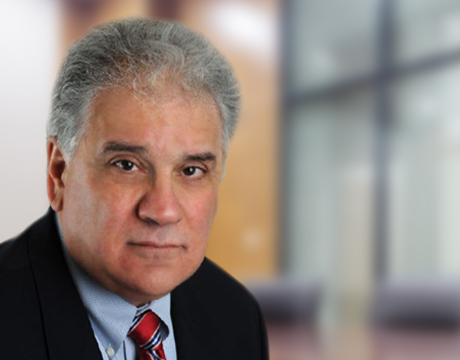Gerald “Jerry” DeFrancisco ’68 (HIST)
Will my undergraduate studies help me find professional and personal fulfillment?
The question that every student asks as he or she embarks on the journey through higher education. Gerald DeFrancisco’68 (HIST), suggests that it is important not only what a student learns in the liberal arts but also how a he or she learns that leads to professional and personal success.
As a History major, DeFrancisco was always asked why he enjoyed studying history since it was all facts and memorization. But DeFrancisco didn’t see it like that. He saw history as a guide on how to live in the future; one must understand the past to grow. It is a cheat sheet of facts, dates, and personal experiences you can use to understand the present and the future. Reading and hearing about current events is simple, but it is a liberal arts student who processes these events and analysis current problems with an understanding of the history involved. This gives an analysis of a problem and a potential solution that has perspective, insight and context.
That is exactly what a liberal arts education is about. You are taught how to learn and to attack problems from multiple perspectives and frameworks. As DeFrancisco explained a liberal arts student has the skill and interest to learn continuously.
Additionally, DeFrancisco told those in attendance that these crucial liberal arts outcomes are exackly what employers are looking for in their employees:
- Effective communication skills both orally and verbally
- Team work
- Ethical judgment & decision making
- Analytical skills
- Application of knowledge and skills in real world settings
He highlighted that none of these skills are technical. They are all social skills that liberal arts students learn and apply throughout all of their studies. Liberal Arts students compliment business, science, and technical majors in the business world.
DeFrancisco is currently the ACE Civic Leader in Residence and works with the NEXT Fellows Program. NEXT Fellows partner with local non-profit organizations as business consultants. He encourages liberal arts students to join NEXT. He believes that the current liberal arts students in the program compliment the experience course skills of the business students and offer the program partners a better consulting relationship.
DeFrancisco concluded with an analysis of how liberal arts majors handle themselves in a business environment. Superior communication skills and sensitivity to the environment and people around them, liberal arts students have the qualities every employer is looking for in their prospective employees. Have faith in your skills and “be loud and proud,” as DeFrancisco says! Keep an open mind and your liberal arts education will have your back.
